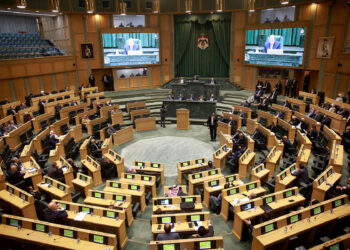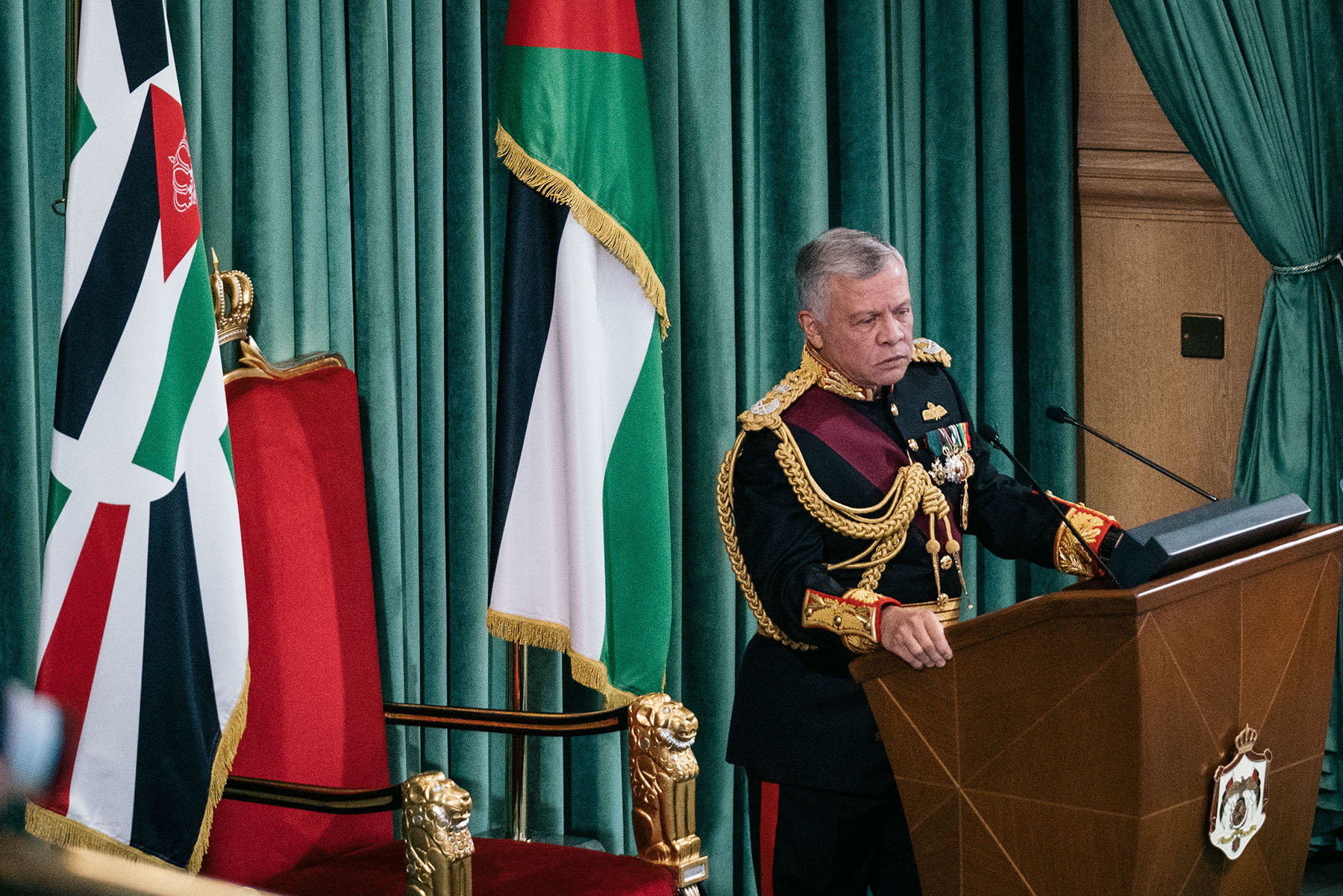Tarek Megerisi is a senior policy fellow with the North Africa and Middle East program at the European Council on Foreign Relations.
On the eve of July 25—Republic Day in Tunisia, which marks the abolition of its monarchy in 1957—Tunisian President Kais Saied became a de facto king. As he had routinely before, he reached beyond the constitutionally provided powers afforded to his office, to try and claim more direct control over the levers of state. The only difference was this time, it worked—perhaps a bit too well.
In the days since Saied fired the prime minister, dissolved parliament, stripped lawmakers of their immunity and assumed the powers of the public prosecutor, Tunisians and observers abroad have been fighting over whether his power grab counts as a coup. The short answer is yes. The fight over the designation is largely down to the baggage that comes with classifying what happened as a coup. What Saied has done is constitutionally dubious at best and undeniably a concentration of all powers in his hands.
A constitutional law professor who was unexpectedly elected president in 2019, Saied instituted all these measures under Article 80 of the Tunisian constitution, which is designed to provide emergency measures to defend against an "imminent threat" to the republic.
Article 80 mandates that the president consult with the prime minister and the speaker of the parliament before it is triggered, and also requires that parliament remain in permanent session, rather than be frozen or dismissed, until the "threat" is neutralized. Saied, of course, didn't do that, so this was a textbook autogolpe, or self-coup, when a president seizes more power by suspending or shutting down the legislature and other branches of government, usually with the backing of the military.
But just because a coup or self-coup has taken place, that doesn't mean it has to end in autocracy. This is the justification from the many Tunisians who cheered Saied on, as they have poured off the streets and onto social media to try and wage a narrative war, vehemently defending his consolidation of power.
Democratization in Tunisia had certainly stalled since a new form of consensus politics birthed a new constitution in 2014, which was supposed to represent a milestone in the revolution that had ousted autocrat Zine El Abidine Ben Ali in 2011. But instead of thriving, Tunisia's political system has since stagnated, plaguing Tunisians' lives in the years between the adoption of the new constitution and Saied's self-coup.
For example, more than 500 laws still need upgrading to meet new constitutional requirements, including the penal code. An updated penal code may have stopped the kind of police violence that has been meted out to protesters across Tunisia since 2014, creating a gulf between rulers and ruled. A governance system that actually governed could have also prevented Tunisia's economic collapse, which pushed so many angry protesters into the streets to begin with.
Six years of this steady decline had pushed Tunisians to the brink. It's why many now retort that their democracy had already died by a thousand cuts, political oversights and corrupt deals.
- Tarek Megerisi
Building up the justice system could have at least shown that Tunisia's revolution was still progressing, even if slowly, by resolving high-profile cases, or actually forming the many commissions—such as, say, on anti-corruption—that the constitution called for.
Appointing a Constitutional Court would have meant that the final authority on reading Tunisia's constitution would never have fallen to a president who prizes his autocratic spirit over the letter of the law. But Tunisia's fractured political class, split between various political parties from across the political spectrum and other influential power bases, such as trade unions and powerful businessmen, could never agree on anything but continuing to compete with each other for blinkered, venal goals.
Six years of this steady decline had pushed Tunisians to the brink. It's why many now retort that their democracy had already died by a thousand cuts, political oversights and corrupt deals. And it's why perhaps Brexit, rather than Egypt's counterrevolution and coup by Abdel Fattah el-Sisi, is the better historical analogy for those seeking to apply one to Tunisia. A population feeling disenfranchised and disenchanted, blaming a distant political class for everything, snatched at the snake oil of an outsider who promised to defeat political villains and restore what was lost.
The problems come, of course, when that ill-defined promise must reconcile with reality. Along with claiming all power in Tunisia, Saied has also claimed all of its problems—and it has many of them. Now, every decision he takes will inevitably shatter the dream of one constituency or another, and there are many pressing decisions to make in Tunisia, fast. The country is currently in the grip of its worst COVID-19 wave, which is claiming hundreds of lives a day. Its economy is wrecked, and the state will go bankrupt at the end of the summer if it can't secure a bailout, Meanwhile, Tunisians are becoming more and more destitute.
What will Tunisia's new constitutional king do about all this? If Saied's track record is anything to go by, not much. He is a professor, with grand visions of what Tunisia's state and society should look like—not a politician who can build coalitions and get things done. So instead, it is more likely that he will try to further extend his own accumulation of power over existing institutions and the parliament, in order to eventually change the constitution itself. He has made clear in past pronouncements that he envisions a strong president overseeing a bottom-up, popular "direct democracy" that effectively can be characterized as a Tunisian "Jamahiriya"—the dysfunctional brand of a "people's republic" that Moammar Gadhafi used as cover for his dictatorship in neighboring Libya.
There have, however, already been some changes in Saied the president from Saied the professor. Take his nationalist, left-wing economic beliefs, and his crusade against the corrupt nexus between politicians and oligarchs that is widely seen as the cause of many of Tunisia's ills. It is difficult to square that doctrine with his first proclamation following the coup, offering an amnesty to the corrupt businessmen of Ben Ali's regime.
Tunisia's well-organized protesters and strong network of civil society organizations are adamant about protecting their young democracy. U.S. Secretary of State Antony Blinken has also publicly called on Saied to "return to the democratic path," specifically stating that the Biden administration expects him to unfreeze parliament and follow the constitution. European officials have given similar messages, albeit more quietly.
The looming inflection point is 30 days after Saied's self-coup. At that point, according to the constitution, Saied will have to either appoint a new prime minister or risk being unable to escape the label of autocrat and all the foreign censure that accompanies it.
Tunisia's political parties, which decided to tactically retreat last week rather than fight Saied and mobilize street protests, as well as the civil society organizations hoping to build something better from this crisis, are also looking to that moment as the deadline to bring Tunisia back from the brink of one-man rule again.
The calculations from the presidential palace in Carthage, however, appear quite different. Saied's success to date has relied upon the army, Tunisia's last unreformed institution, which seems to share his vision for the country by implicitly backing his power grab. Saied has also made it abundantly clear that he will neither accommodate nor compromise with a political class that he considers to be beyond salvation.
He will also be wary of any prime minister and government he nominates "betraying" him, as former Prime Minister Hichem Mechichi apparently did by creating working coalitions with the political parties in parliament. While Saied will be loath to appoint a prime minister, he almost inevitably will want to stay on the right side of U.S. aid restrictions and free himself from rescuing the state from COVID-19 and bankruptcy, so he can focus on the truly important task of redrawing the constitution.
Now, the challenge is how to prevent a professor with autocratic tendencies, whose only institutional backing is the military, from stumbling down paths that historically lead to terror and tyranny.
- Tarek Megerisi
So, while Saied will no doubt eventually concede to appointing an acolyte as prime minister, he will protect his power and his popularity by warring with Tunisia's parliament before its members can return. It is rumored that lists have been prepared of MPs to be arrested and hauled before military courts for a range of pre-existing charges or new corruption investigations—something that already seems to be beginning.
In this way, Saied will be able to play to the mob, demonstrating how he is "draining the swamp," as it were, all the while cowing parliament and creating diversions from the unrelenting crises at hand. Doing so gives him leverage across Tunisia's political, union and business sectors, given that leading figures in all of them have histories that won't withstand populist show trials.
Saied's unexpectedly successful self-coup has pushed Tunisia to the edge. It's indisputable that something had to change. Now, the challenge is how to prevent a professor with autocratic tendencies, whose only institutional backing is the military, from stumbling down paths that historically lead to terror and tyranny. Tunisian civil society will need to lead, and receive the strong support of foreign allies, if they are to successfully shepherd their democracy back from exile.
![]()































![Security forces loyal to the interim Syrian government stand guard at a checkpoint previously held by supporters of deposed president Bashar al-Assad, in the town of Hmeimim, in the coastal province of Latakia, on March 11, 2025. Syria's new authorities announced on March 10, the end of an operation against loyalists of deposed president Bashar al-Assad, after a war monitor reported more than 1,000 civilians killed in the worst violence since his overthrow. The Syrian Observatory for Human Rights said the overwhelming majority of the 1,068 civilians killed since March 6, were members of the Alawite minority who were executed by the security forces or allied groups. (Photo by OMAR HAJ KADOUR / AFP) / “The erroneous mention[s] appearing in the metadata of this photo by OMAR HAJ KADOUR has been modified in AFP systems in the following manner: [Hmeimim] instead of [Ayn Shiqaq]. Please immediately remove the erroneous mention[s] from all your online services and delete it (them) from your servers. If you have been authorized by AFP to distribute it (them) to third parties, please ensure that the same actions are carried out by them. Failure to promptly comply with these instructions will entail liability on your part for any continued or post notification usage. Therefore we thank you very much for all your attention and prompt action. We are sorry for the inconvenience this notification may cause and remain at your disposal for any further information you may require.”](https://dawnmena.org/wp-content/uploads/2025/04/syria-22039885951-360x180.jpg)






